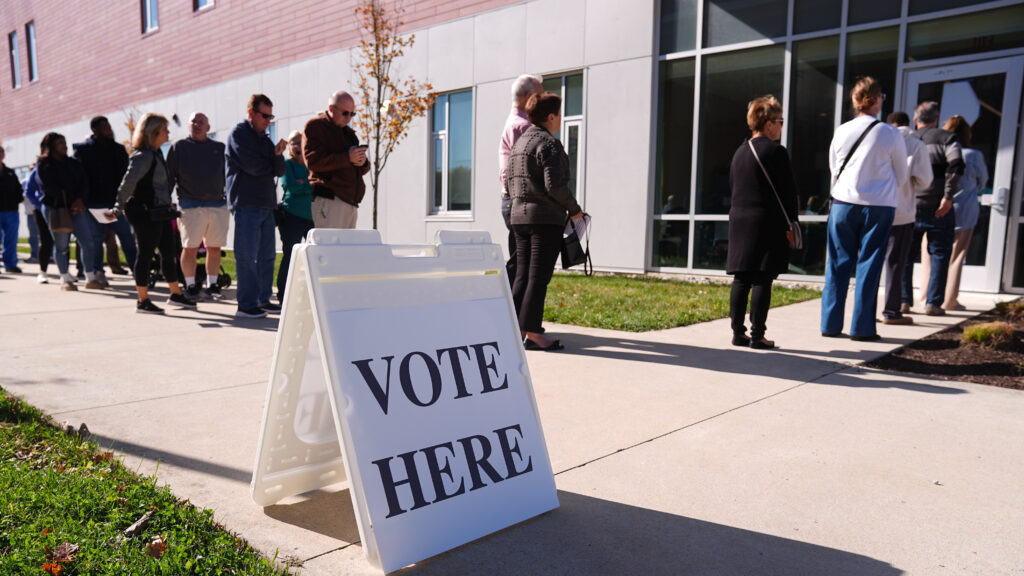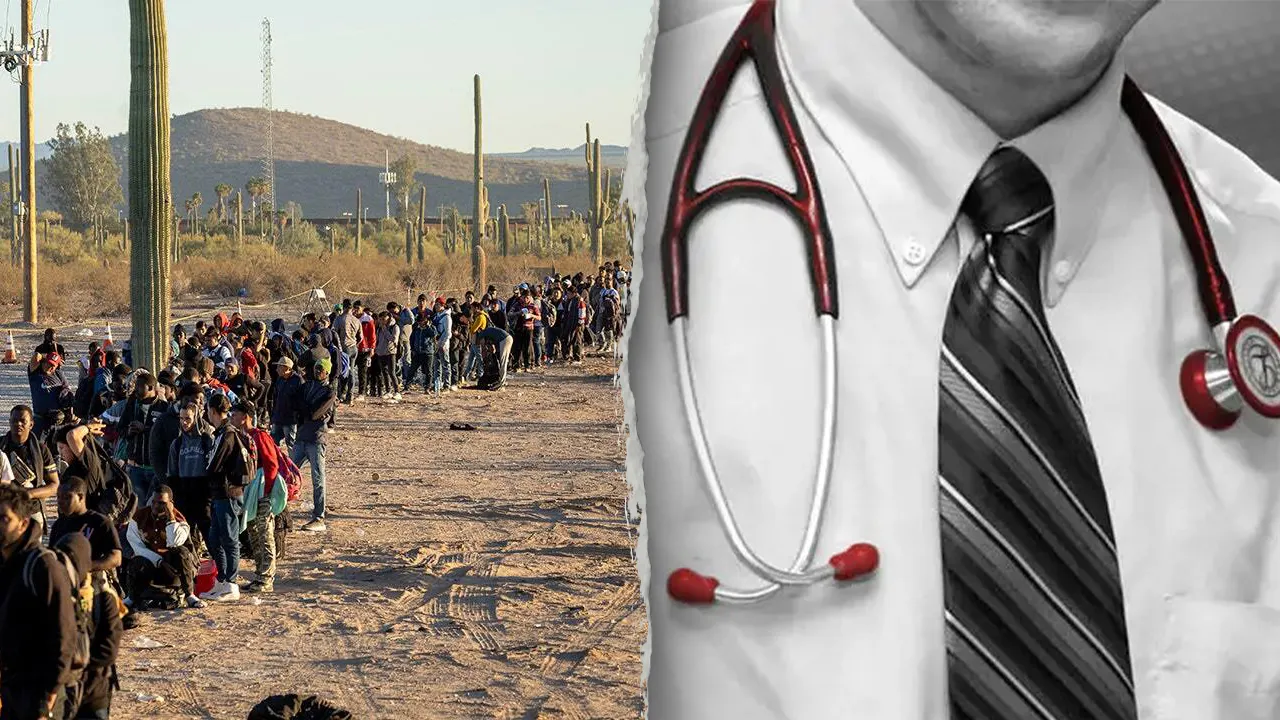Copyright STAT

WASHINGTON — Health care has become a central issue in the much-watched governors’ races that will be decided next week — and the results could redirect the parties’ midterm strategies or sway their approaches to federal health policy. In Virginia and New Jersey’s gubernatorial races, new lines of attack are opening up in a time of transformational shifts across American health care, polling and political advisers told STAT. Democrats and Republicans are responding by refining their central message to highlight their perceived strengths. Advertisement Democrats see an opportunity to link health issues with economic ones, at once seizing on voter frustrations around rising costs and attacking opponents for cuts to health programs. Their arguments come after the passage of Republicans’ One Big Beautiful Bill, which is set to slash Medicaid funding by nearly $1 trillion over the next decade, and amid a weeks-long government shutdown fight over whether to extend government subsidies for some health insurance plans on Affordable Care Act marketplaces. Without those subsidies, ACA enrollees could face a 114% increase in the cost of their premiums, according to KFF. That comes as prices continue to rise across the insurance market as a whole. “We see time and again that the biggest issues right now for Americans are the economy and affordability,” said Sam Newton, communications director at the Democratic Governors Association. “Whether or not you can get the health care you need and afford it plays directly into that.” Republican strategists told STAT they see a potential risk for their candidates if Democrats are successful in tying health issues to affordability. But they also believe the GOP can make headway on health issues by focusing on positions with popular support, such as addressing the taxpayer cost of health subsidies or questioning government support of gender-affirming care for minors or health care for immigrants who entered the U.S. illegally. Advertisement Republicans should “go on offense,” Joel White, a Republican strategist and president and CEO of Horizon Government Affairs, said. Touting Trump’s deals to lower drug prices is one approach, he said, as is highlighting that the expiration of billions in subsidies is part of the system — Obamacare — that Democrats created and shepherded. Another strategy? Change the subject. “Democrats don’t really have an issue to run on other than health care,” White said. “The risk for Republicans is that [health care] gets built into a broader narrative of the economy and inflation.” A test for the midterms The strategies in this year’s campaigns mirror larger political messaging from both parties over recent months. Tuesday’s elections will offer an initial test of those approaches. The effectiveness of the campaigns could ultimately sway federal health policy through the coming year as Republicans look to hold control of Congress and Democrats seek a majority to check President Trump’s aggressive agenda. Abigail Spanberger and Mikie Sherrill, the Democratic candidates for governor in Virginia and New Jersey, respectively, are hitting the party’s major talking points, strategists said. Spanberger made health care a top item in her “Affordable Virginia Plan,” which includes proposals for pharmacy benefit manager reform, drug and hospital price transparency, and telehealth expansion — echoing a number of priorities in Sherrill’s “Affordability Agenda.” The two candidates, along with scores of other Democrats, have also attacked Republicans on Medicaid cuts and rising insurance costs, arguing care will be unavailable or unaffordable because of Republicans’ federal policies. Republicans “are going to learn in 2025 that health care cost is a vulnerability,” said Jesse Ferguson, a Democratic strategist. “That will either shake them loose to change some of their agenda or become an anchor around their ankles as they go into the midterms.” If Spanberger can win with the approach, other Democrats are likely to emulate it, Ferguson said: “Virginia’s often the first chapter of a national story.” Advertisement But GOP candidates in the races are also looking to forge a new path on health-related issues. Winsome Earle-Sears, the Republican gubernatorial candidate in Virginia, has focused nearly half of her campaign’s advertising spending on transgender rights-related issues, arguing against transgender people being allowed to use facilities that align with their gender identity. One of her ads mirrors one from the Trump 2024 campaign, which was later lauded among Republicans as particularly effective. The issue of gender-affirming care “has lost a lot of steam” for Republicans since the last election, White said, though he expects it to still move voters. In New Jersey, GOP gubernatorial candidate Jack Ciattarelli has taken a different tack, trying to compete with his opponent on health and affordability. In recent days, he has touted proposals to protect insurance coverage and Medicare and Social Security spending — as well as to “better invest Medicaid dollars.” None of the campaigns would comment on the record about their internal strategies in the final days of their races. This year’s elections are not a one-to-one representation of the midterms, Democratic and Republican advisers said. The MAHA of it all Many of the health policies being discussed won’t be fully felt until months or even years into the future. The races in Virginia and New Jersey also come with their own peculiarities that could muddy any attempts to deduce causation between outcomes and high-level messages. And the stories that become national fixations often fade just days after coming into view — calling into question the durability of months-long campaigns around federal health insurance subsidies or Medicaid reimbursement policy. Still, political advisers are closely watching the races for signs of shifting politics of health care. Among those shifts is the Make America Healthy Again agenda — which has been hailed by supporters as the rare conservative health policy that inspires and potentially expands Trump’s base. Advertisement Ciattarelli appeared to nod to the movement in his public opposition to “a one-size-fits-all vaccination schedule,” saying he would support exemptions for the shots. But the broad MAHA agenda may not be the game changer Republicans had hoped, some Republican advisers said. White said it would help with a particular demographic in some races, but other issues would win out in many races, including this year’s. And Jon McHenry, a Republican pollster and vice president of North Star Opinion Research, said there’s a risk for Republicans looking to adopt Kennedy’s agenda: Many of the secretary’s general assertions about food safety are seen as common sense, while his ideas on vaccines remain well outside those of the average voter. “If you’re pegging your hopes to an RFK Jr.-branded realm of issues,” he said, “that sounds like playing with fire.” But among the most important questions for Republicans going into the midterms, McHenry said, is how they address Democratic accusations of removing access to care and increasing costs. “A lot of that issue comes down to: Do they have a good answer for the votes that they’ve cast?”



